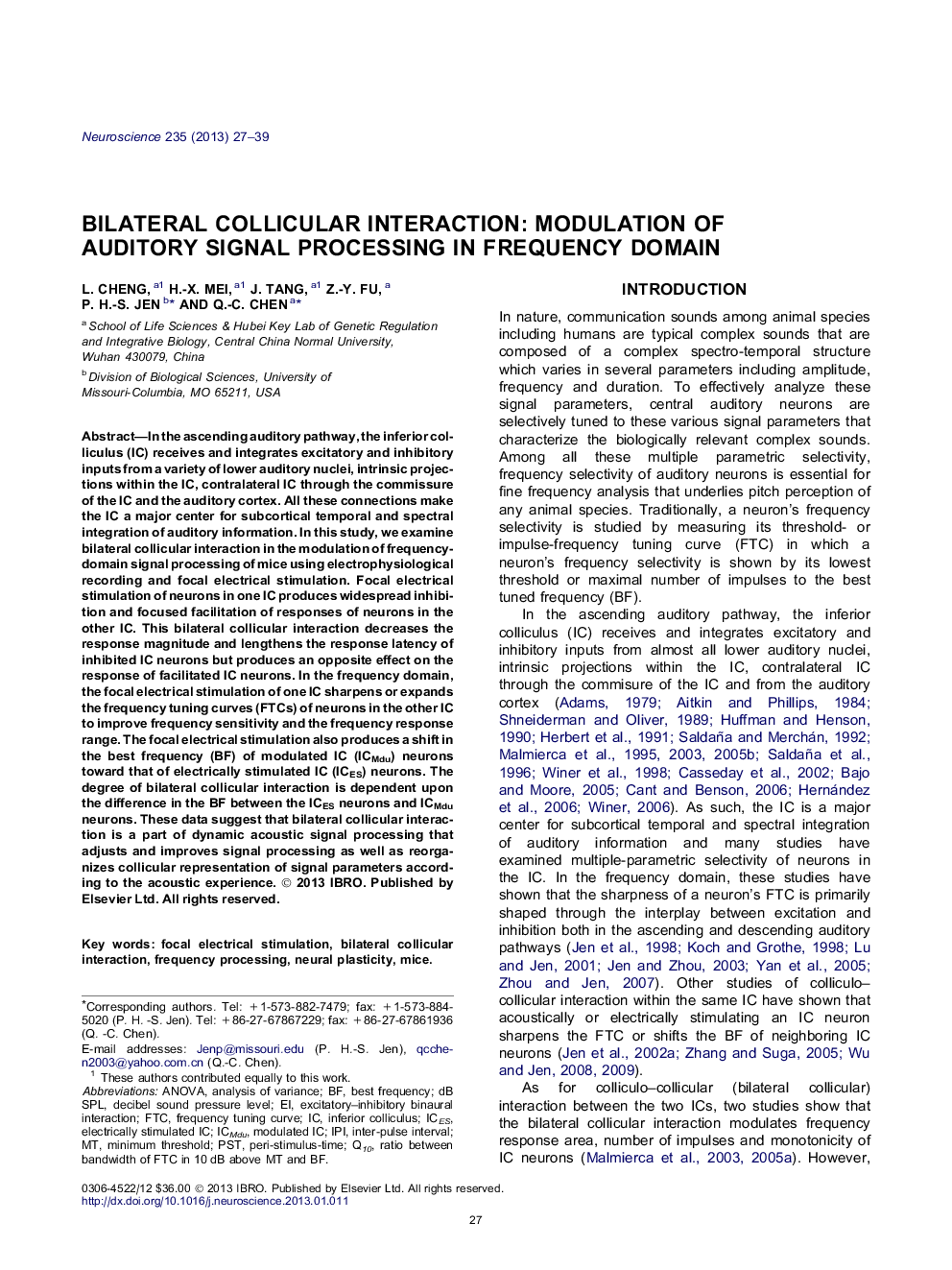| Article ID | Journal | Published Year | Pages | File Type |
|---|---|---|---|---|
| 4338052 | Neuroscience | 2013 | 13 Pages |
In the ascending auditory pathway, the inferior colliculus (IC) receives and integrates excitatory and inhibitory inputs from a variety of lower auditory nuclei, intrinsic projections within the IC, contralateral IC through the commissure of the IC and the auditory cortex. All these connections make the IC a major center for subcortical temporal and spectral integration of auditory information. In this study, we examine bilateral collicular interaction in the modulation of frequency-domain signal processing of mice using electrophysiological recording and focal electrical stimulation. Focal electrical stimulation of neurons in one IC produces widespread inhibition and focused facilitation of responses of neurons in the other IC. This bilateral collicular interaction decreases the response magnitude and lengthens the response latency of inhibited IC neurons but produces an opposite effect on the response of facilitated IC neurons. In the frequency domain, the focal electrical stimulation of one IC sharpens or expands the frequency tuning curves (FTCs) of neurons in the other IC to improve frequency sensitivity and the frequency response range. The focal electrical stimulation also produces a shift in the best frequency (BF) of modulated IC (ICMdu) neurons toward that of electrically stimulated IC (ICES) neurons. The degree of bilateral collicular interaction is dependent upon the difference in the BF between the ICES neurons and ICMdu neurons. These data suggest that bilateral collicular interaction is a part of dynamic acoustic signal processing that adjusts and improves signal processing as well as reorganizes collicular representation of signal parameters according to the acoustic experience.
► Bilateral collicular interaction sharpens or expands FTC of IC neurons. ► Bilateral collicular interaction produces a shift in the BF of IC neurons. ► BF shift of modulated neurons is toward that of electrically stimulated IC neurons. ► Bilateral collicular interaction depends on BF difference between neurons in two ICs.
